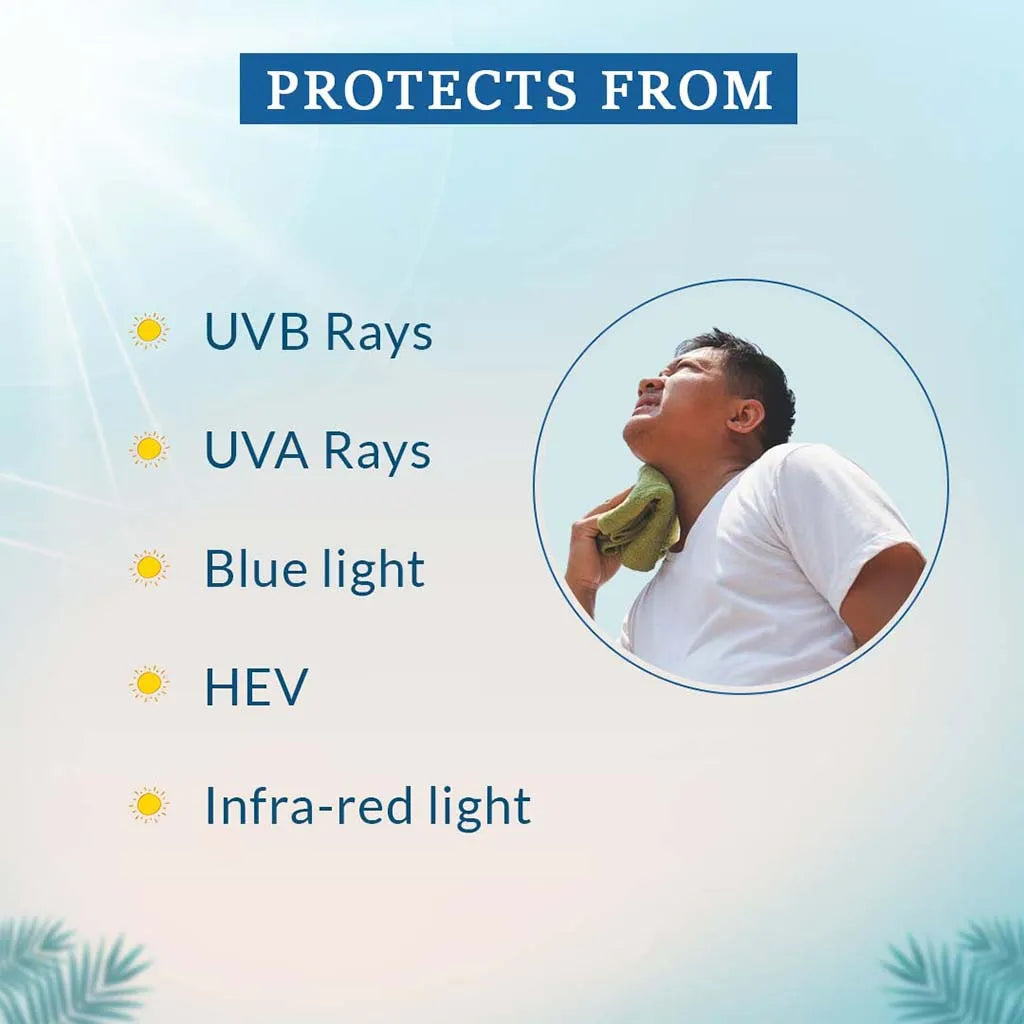
Which is the Best Sunscreen for Winters?
By: Sandip KumarIt makes perfect sense to apply a generous amount of sunscreen in the summer before going outside. After all, the summertime is when the sun is at its harshest, and the summer heat can also make your skin dehydrated. So everyone is aware that purchasing a moisturizer with an SPF of at least 15 is essential in the summer. But did you know that the winter months also call for applying a broad-spectrum sunscreen?
Although many individuals question the need for sunscreen during the winter months as they are not exposed to the bright sun. While it's convenient to link cold weather to dry skin and windburns, most people are unaware that winter UV rays can cause as much harm as summer light.
In fact, a daily step in your winter skincare routine should be to apply a good moisturizer followed by sunscreen.
Why do we need SPF in winters?
Here are a few reasons why sunscreen is necessary in winters.
-
More UV due to thin ozone
The ozone layer acts as the earth's screen by blocking damaging UV rays from the sun. In fact, the winter months are when the ozone layer is thinnest. This inevitably means that during this season, the ozone layer will absorb fewer ultraviolet (UV) rays, and your risk of UV exposure will significantly rise. Therefore, your best defence against UV exposure throughout the winter is a sunscreen with a high SPF. -
Low Humidity and Vicious winds
Winters are notorious for having little atmospheric moisture and abrasive winter winds, which makes it common for people to have dry skin. As a result, your skin loses moisture, which raises the possibility of infections, fissures, and wrinkles. A simple strategy to replenish the moisture in your skin is to use a moisturizing sunscreen. -
Risk of skin cancer
Solar damage can still happen even while there may be less sunlight throughout the winter. Wintertime exposure to UV radiation is significantly higher, which raises the risk of sunburns, spots, and possibly even skin cancer. Melanoma, the most lethal type of skin cancer, has a direct relationship with UV exposure. Significantly lowering these dangers can be accomplished by wearing a heavy covering of sunscreen. -
Faster removal of sunscreen due to winter weather
Although you might believe that during the summer, perspiration shortens the duration of sunscreen, this issue also occurs in the winter. The layer of sunscreen you apply in the morning can be readily damaged by winter winds and sudden storms, and the dry air also makes your skin feel drier. This necessitates reapplying sunscreen frequently, even in the winter. -
Indoor lights too generate UV Radiation
Wintertime sun exposure may be lower, necessitating a larger reliance on electric lighting. However, did you know that UV rays are also emitted by ambient, blue, and infrared lights? Skin damage and an elevated risk of developing skin cancer can be brought on by increased exposure to UV radiation. Therefore, even if you are inside during the winter, it is crucial to use sunscreen.
Is SPF 15 enough in winter?
If you go out in the sun for a short time, like 30 to 60 minutes, and away from peak sun, that is 10 am to 4 pm, a sunscreen of SPF 15 is probably enough in winters.
When do you need SPF 40 in winter?
If you go out for long hours and in peak sun, go for a broad-spectrum sunscreen that protects against UVA and UVB rays.
Can we use gel sunscreen in winter?
Yes, if you have oily skin, you can use gel sunscreen in winters. Lotions or creamy sunscreens are oily, heavy, and sticky. It will clog pores and cause acne breakouts and blemished skin. In contrast, gel sunscreens are lightweight and non-sticky.
To find winterized sunscreens, what should you search for?
According to dermatologists, mineral-based sunscreens with zinc oxide or titanium oxide offer extra moisturizing benefits.
Additionally, humectants—those "water-grabbing" substances like glycerin, hyaluronic acid, lactic acid, and glycols—should be sought out in our search for the right products. In addition to regulating the skin's top layer, they also draw water into the skin from the environment and the dermis underneath. This helps the skin retain moisture.
Of course, you should also "look for sun protection items branded as broad spectrum with at least SPF 30."
Below are a few recommendations which you can choose to buy based on your skin type:
- Chemfree Spf 30 Sunscreen: A physical sunscreen suitable for oily skin offering broad spectrum shielding against both UVA & UVB rays. It contains the micronized form of physical blockers like zinc oxide and titanium dioxide.
- Silicone SPF 40 Sunscreen Gel: Sunscreen gel with SPF 40, FCL Ultra-Light Gold Silicone is perfect for combination to oily skin. It offers exceptional shielding against UVA, UVB, blue light, infrared, and high-energy visible light, among other dangerous light sources. Neo Heliopan Hydro, a highly potent water-soluble UVB absorber, is present in it. It is water-resistant sun protection, which increases the efficacy of the formulation.
- Light Weight SPF 80 Sunscreen Lotion: FCL lightweight non-greasy broad-spectrum SPF 80 lotion increases skin defence and resistance to UV light, blue light, infrared light and high energy visible light. This weightless, water-resistant lotion that is ultra-sheer, mattifying, and mattifies is ideal for daily usage.


